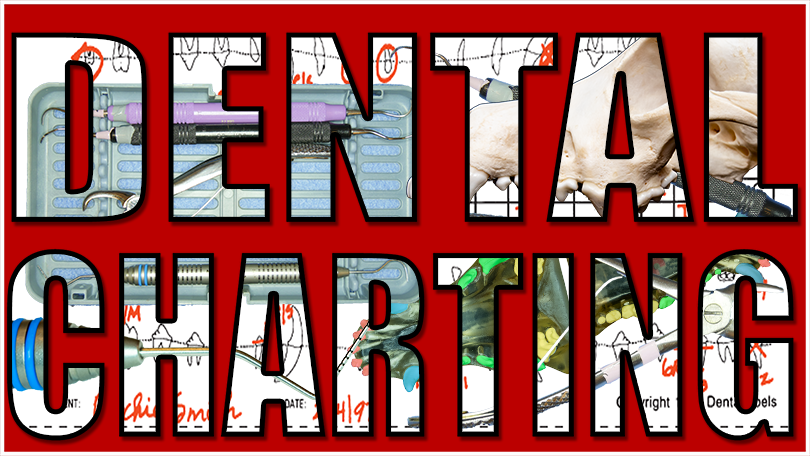Skill Group: Clinical Skills
SKILL OVERVIEW: Dental Charting
Dr. Amy Voss
This skill is part of the skill unit: Small Animal Oral and Dental Health I

Introduction
Dental charting and radiographs are used to assess overall health of your patient’s mouth; a clinician makes determination such as the following during dental charting:
- What is normal;
- What is abnormal;
- What requires treatment; and
- What requires referral
Having good dental and oral health contributes to the overall quality of life of an animal. Dental diseases are prevalent in dogs and cats, and they are painful; preventive dentistry helps to catch issues early, rather than letting things get to the point where your animal is suffering and emergency intervention / reaction is needed.
In this module, you will learn and practice the following:
- Identifying instrumentation;
- Triadan System;
- Normal dental anatomy;
- Dental pathologies; and
- Dental charting procedure
Learning Outcomes
By the end of this module, you should be able to:
- Demonstrate and communicate the Triadan System of tooth numbering used in veterinary medicine.
- Recognize and report the following common dental pathologies on a dog model: tooth crowding, missing teeth, furcations, fractures gingival masses, and abrasions
- Given a model/patient, discover and communicate gross dental pathologies and locations using medical terminology to be recorded by a technician.
- Demonstrate ability to correctly use the periodontal probe with explorer.
- Demonstrate systematic dental charting in a canine patient.
Module Roadmap
To successfully complete this module, we recommend that you review the following lessons in order:
- Identifying Instrumentation
- Modified Triadan System
- Dental Anatomy
- Normal vs Abnornmal Findings
- Dental Charting Procedures
- Checkpoint Assessment: Canine Dental Oral Examination